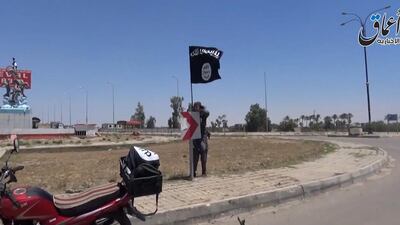Already, the infighting has begun in Iraq, with neither the central government nor various allied militias willing to accept the blame for the fall of Ramadi. This is to be expected after a military setback. But, more broadly, the blame for ISIL’s lightning takeover of the capital of Iraq’s largest province must fall squarely on Baghdad’s shoulders.
Step back and ISIL is in anything but retreat. Despite months of US-led airstrikes, the militant group is still able to fight on multiple fronts: sending fighters west into Syria, as far as Palmyra, and east into Iraq, just a few kilometres from Baghdad. Of course, no military campaign is linear, but this level of free movement on the part of ISIL suggests that, especially in Iraq, a concerted attempt to target the group has not occurred.
Until now, Baghdad has been too reactive, too willing to watch and wait for ISIL before it sets up a defensive strike. This is precisely the opposite of what needs to happen. Iraq needs to take a much more strategic view of ISIL – cutting off their supply lines from Raqqa and actively pushing them back up the Aleppo-Baghdad road.
That is especially the case now, as the end of June approaches. That was when, a year ago, the group declared a “caliphate”. Since then, they have had successes and failures, but they will be keen for a propaganda victory close to that date. The Iraqi government must deny them that.
Of course, the fight against ISIL will not be won in Iraq alone. But the Syrian regime of Bashar Al Assad has limited interest in destroying ISIL – it did, after all, do its best to allow the group to flourish, striking other rebel groups but leaving the militant group’s headquarters in Raqqa alone. For now, when the group gets too close, as it did last week, the regime pushes it back. But the regime likes the contrast effect that the barbarians of ISIL provide.
The fight against ISIL, then, must be waged primarily by Baghdad and in Iraq. Prime minister Haider Al Abadi was elected precisely to unify the armed forces. He must do that, faster and more firmly that he has done before, paying particular attention to bringing the Sunnis of Iraq back into the fold. Only a unified Iraq can push ISIL out of the country; and only by pushing ISIL out of Iraq, can they be contained and destroyed.

